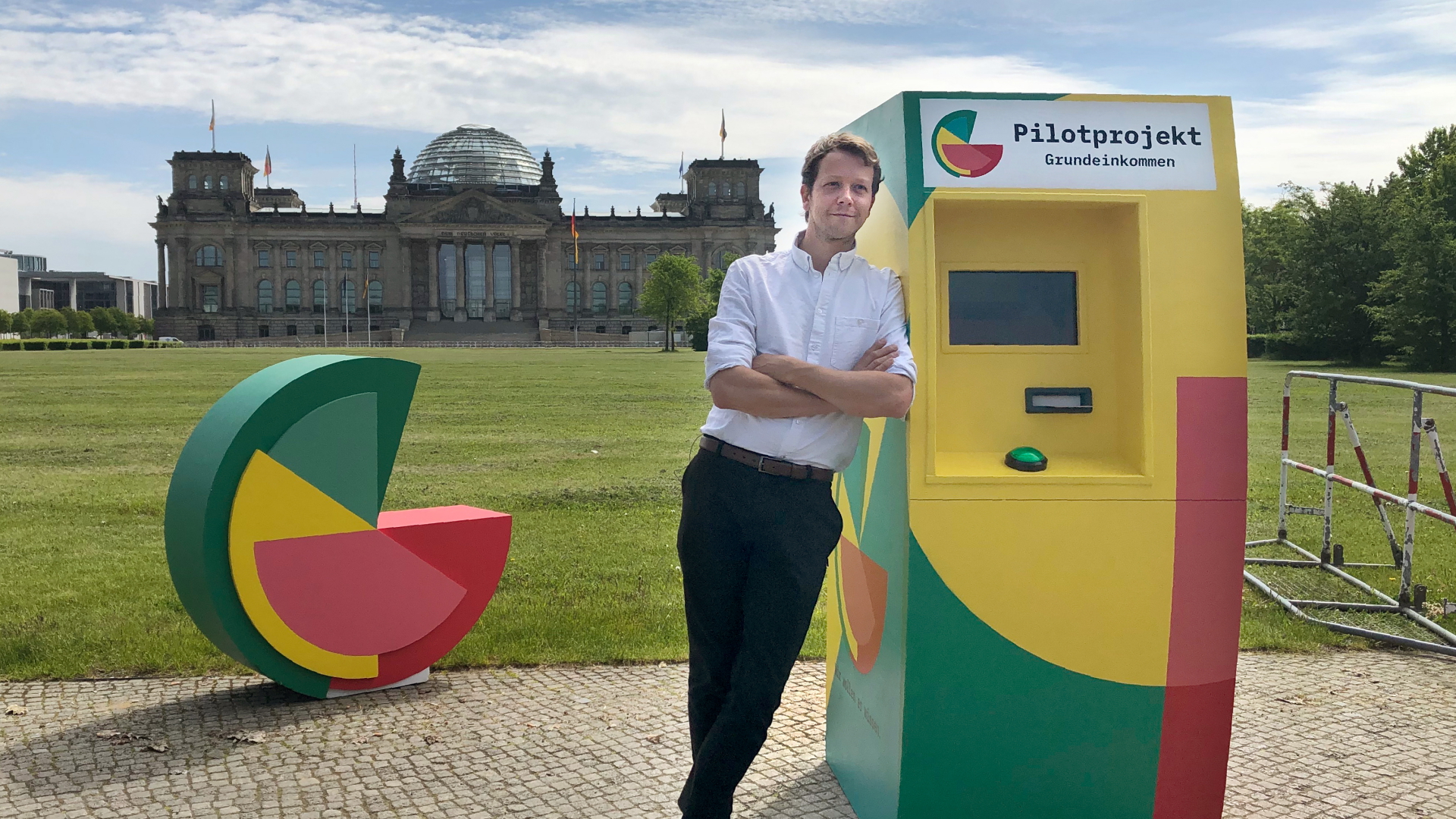A good two million people applied for the long-term study on the unconditional basic income. 122 of them will now receive 1200 euros a month for three years – and thus become research objects.
From Kerstin Breinig, rbb Out of curiosity, Jeremy Scheibe applied for the Unconditional Basic Income (UBI). The 28-year-old didn’t believe that the lot could really hit him. But since April he has been receiving 1000 euros a month – for a year. For him it is a nice security, as he says himself, and a good way to repay the student loan debt. Like Jeremy Scheibe, more than 800 people have received a basic income from Mein Grundeinkommen since 2014 and have used it to finance self-employment, travel, training or simply a financially more relaxed life. The money comes from private donors. Now the effect of the BGE in Germany is to be scientifically researched for the first time. More than two million people applied for this long-term study – 122 of them will now receive 1200 euros a month for three years. However, this time the participants have to meet one condition: fill out a questionnaire every six months.
Social hammock or creative incentive?
Half of Germans support the UBI, the other half categorically reject it. In the end, the opponents saw themselves confirmed. A Finnish study, in which the unemployed received an unconditional monthly income, found that the participants were happier, but mostly still unemployed. Grist to the mill of those who fundamentally assume that any incentive to work would cease to exist with a basic income. So couch instead of productivity. The new study therefore includes a control group in addition to the 122 basic income recipients. For this purpose, singles between 21 and 40 were selected who had the same characteristics and life situations as possible, quasi statistical twins.
More courageous decisions in working life?
“We wanted to target the middle of society and also provide people with such a basic income who have completed their training and are at the beginning of their career and family education,” says Jürgen Schupp from the German Institute for Economic Research (DIW). In the next three years, the researchers want to find out how money is changing people. “Do these people develop more common sense now, does it perhaps lead to less burnout, do they perhaps also make more courageous decisions in their working life?” These are the questions Schupp hopes for answers. The initiators of “My Basic Income” want to prove that their idea is the right one. Michael Bohmeyer initiated the project. He wants to convince everyone with the pilot study. He believes that people will continue to do fulfilling jobs, but will become more creative and more charitable. “The debate has been full of ideological beliefs for decades. We believe that practical examples are now needed so that the debate can be conducted in a substantive manner and we can get one step closer to the introduction,” hopes Bohmeyer.
 The symbol for the pilot project: an ATM in front of the Reichstag building. Michael Bohmeyer believes in the success of the idea. Image: dpa
The symbol for the pilot project: an ATM in front of the Reichstag building. Michael Bohmeyer believes in the success of the idea. Image: dpa
Financing? Not clear
But there are still many unanswered questions. On the other hand, Professor Dominik Enste from the IW Cologne reckons that 1000 euros a month for everyone would mean one trillion euros a year that anyone would have to pay. “We have had a successful social system based on give and take for 70 years.” For him, the UBI is a utopia that must fail because of reality. “People don’t like to give without something in return,” says Enste. The results of the study will have to show whether the UBI can be a one-off experiment or the way to a new future. In a second stage, the possible financing should then also be examined.





























































You must log in to post a comment.